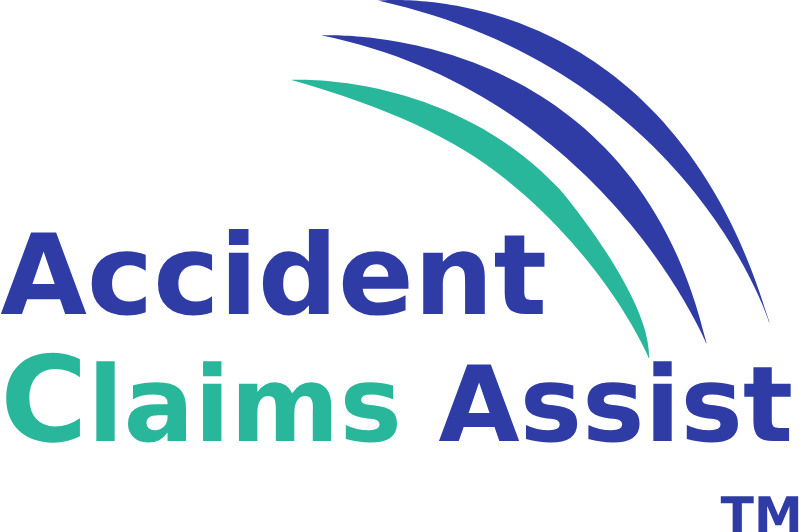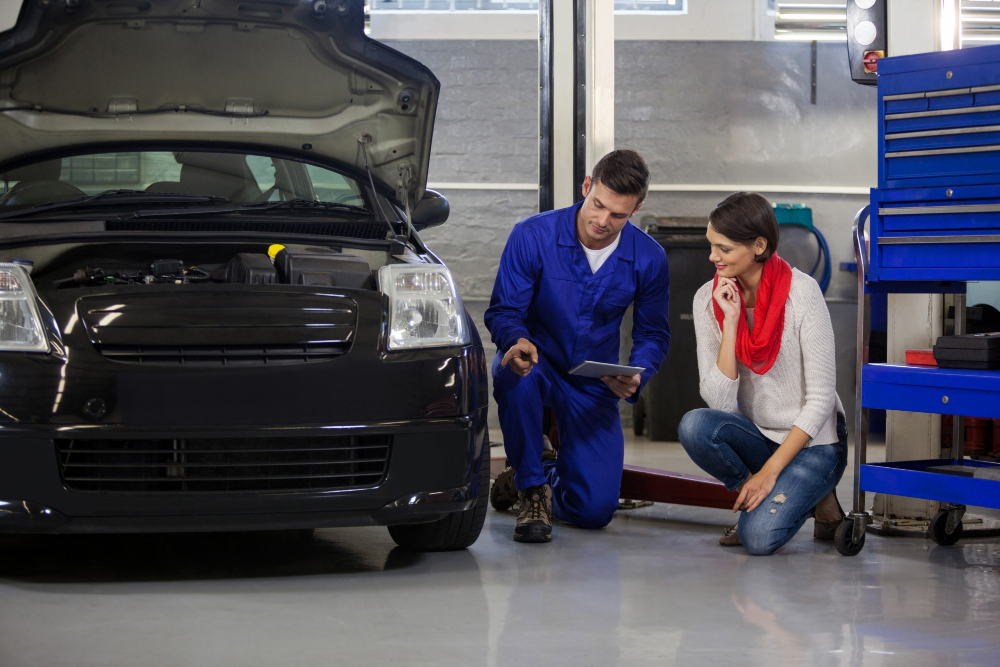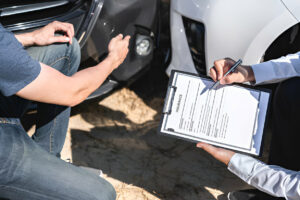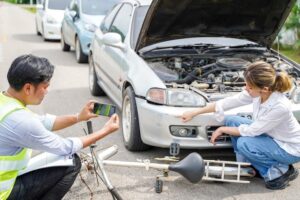If If you’ve been involved in a road traffic accident and your vehicle has been damaged, you may wonder if you can repair it yourself. While no law prevents you from doing so, reviewing your insurance policy before making a final decision is crucial.
You can repair your vehicle with the necessary skills and experience, but this is generally not recommended unless the damage is minor. Self-repairing your vehicle could impact your insurance claim, potentially void your warranty, and leave you responsible for any issues that arise from improper repairs.
What is the Repair Process?
The typical repair process for a vehicle after an accident involves several steps:
.Initial Assessment and Estimate: A garage assesses the damage and provides an estimate for repairs.
.Insurance Approval: The insurance company will approve the repair costs if needed.
.Repair Work: This includes disassembly, part replacement, bodywork, painting, and final assembly.
.Quality Checks: The vehicle undergoes a final inspection to ensure it’s roadworthy before being returned to you.
Your Right to Choose Your Repair Shop
You can choose where your vehicle is repaired, even if your insurance company recommends a specific repair shop. While some insurers might steer you towards their network of approved garages, you are not obligated to use their services. If you prefer a trusted garage, you can take your vehicle there.
Types of Vehicle Repairs
Vehicle repairs range from minor touch-ups to more complex structural or mechanical work. Common types of repairs include:
- Accidental Repairs
- Structural Repairs
- Touch-ups
- Theft Repairs
- Dent & Scratch Repairs
- Suspension and Alignment Repairs
- Mechanical Repairs
If the repairs are complex, you may want to leave them to professionals, as attempting them without the proper tools and skills could cause more damage and additional costs.
Arranging Your Repairs
While insurance companies may push you to use their recommended repair network, you can choose your repairer. If you prefer a trusted garage, you can arrange repairs independently. Here’s how:
.Review Your Insurance Policy. Check for weaknesses or limitations that might affect your choice of the repair shop.
.Provide Repair Estimates: If your insurer requests repair estimates, you are not required to follow their suggestions. If you are satisfied with your garage, stick with them.
.Independent Inspection: Your insurer may send an independent engineer to inspect your vehicle and report on the costs. You can also hire your engineer if you disagree with their findings.
If the repair costs or assessments become a dispute, contact a claims management service to help you navigate the process.
What if I don’t do the Repairs?
You might still be entitled to compensation if you cannot afford the repairs. Here are some options:
- Check with Your Insurer: Speak to your insurance company and the defendant’s order to ensure you lose compensation.
- Seek Legal Advice: If you face a more complicated situation, consider consulting with a lawyer experienced in handling such claims.
- Explore Affordable Repair Options: If the quote from one repair shop is too high, you may find more affordable alternatives. Ensure you stay in touch with your insurer if the repair shop is not in their network.
Advantages of Using a Garage for Repairs
For many, DIY repairs aren’t critical, especially for significant damage. A garage provides skilled mechanics who can ensure the job is done correctly. If you were not at fault in the accident, using a professional repair shop will help ensure the process is as smooth as possible. Additionally:
- Courtesy of Hire Cars: Many garages offer courtesy cars while your vehicle is being repaired, so you won’t be able to drive without transportation.
What Happens if the Other Driver Is Not Insured?
If you are involved in an accident with an uninsured driver, you can still claim through the Motor Insurers Bureau (MIB). The MIB can settle claims in cases where the driver is uninsured or has breached their insurance conditions.
However, if you are an injured passenger in a vehicle driven by an uninsured or unidentified driver, you cannot claim through the MIB unless you can prove that the driver was uninsured.






